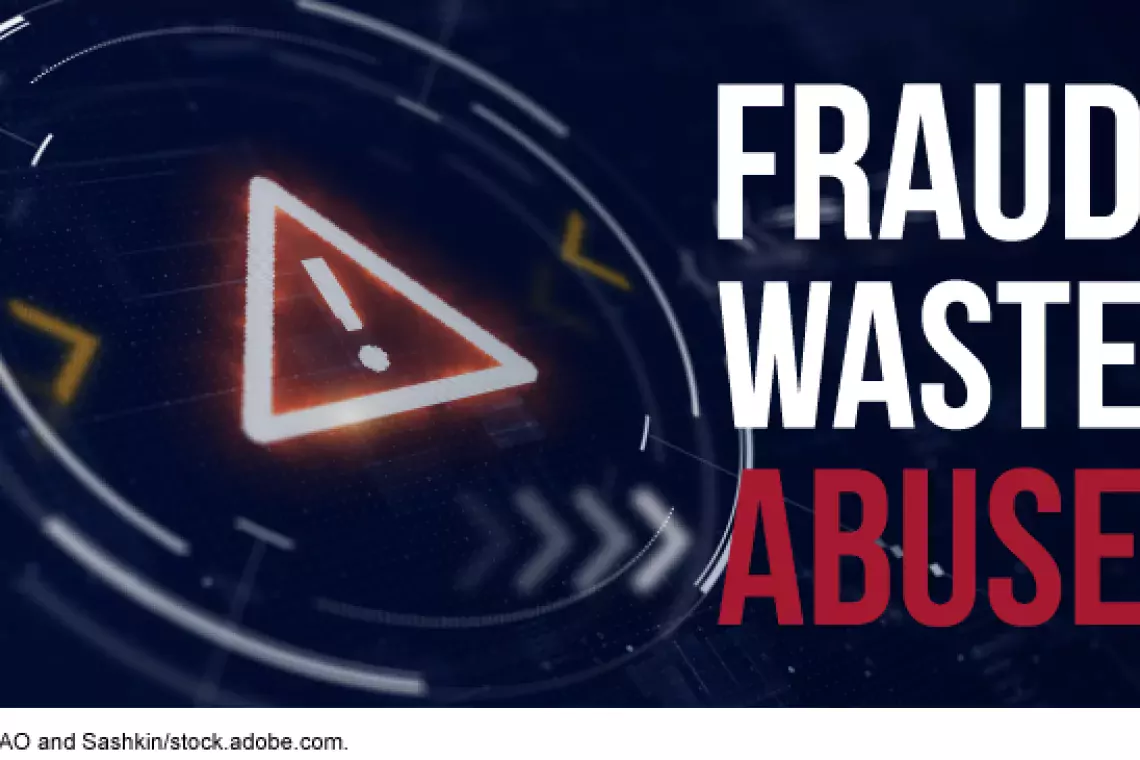As COVID-19 aid arrives, be on the lookout for scams
[Correction—This blog has been corrected to indicate that FDA has approved a home test collection kit, as of May 8, 2020.]
As individuals, employers, and agencies await aid from the $2 trillion Coronavirus Aid, Relief, and Economic Security (CARES) Act, they should also be on the lookout for scams. The CARES Act, signed into law on March 27, provides
- funds for federal and state agencies to respond to the COVID-19 pandemic
- loans and grants to assist businesses and hospitals
- economic impact payments of up to $1,200 per individual based on income with an additional $500 per child.
The act also temporarily expands unemployment benefits, which have already been the subject of concerns about scams and fraud.
In today’s WatchBlog, we look at several types of scams that are already occurring or are possible during the COVID-19 pandemic—and federal agencies’ roles in protecting you from them.
Robocalls
On April 2, the IRS issued a warning about a surge in calls and email phishing attempts tied to economic impact payments to individuals. According to the IRS, the scammers’ calls emphasize the words “stimulus check” or “stimulus payment” and suggest they could help you receive payments faster if you provide personal and/or banking information.
In December, we reported on robocalls and how federal agencies enforce prevention laws for them. Robocallers often use a fake caller ID—a practice known as “spoofing”—to disguise their identities and gain credibility. Spoofing schemes have deceived people into providing financial information or buying falsely advertised products, costing the victims millions of dollars each year.
In our report, we looked at what federal agencies are doing to protect consumers. We found that the Federal Communications Commission, the Federal Trade Commission, and the Department of Justice are investigating and prosecuting scammers, educating the public, and supporting a new industry-developed system to detect spoofing.
In July 2018 and March 2020, we reported on the IRS’s efforts to curb identify-theft as it relates to tax fraud on businesses and individuals. The IRS’s efforts have kept millions of tax return funds out of criminals’ hands, but we found that more could be done. To learn more, check out our recommendations.
Identity theft scams – FDIC and banking
On March 18, the Federal Deposit Insurance Corporation (FDIC) warned consumers of recent scams with impostors posing as agency representatives and asking for bank account information or cash. The FDIC notice reminded consumers that it does not send unsolicited correspondence or contact people via telephone asking for money or sensitive personal information, such as bank account information, credit and debit card numbers, Social Security numbers, or passwords.
Health supplement scams
In this time of COVID-19, beware of offers for “home” test kits and unknown “miracle” cures or vaccines. According to the U.S. Food and Drug Administration (FDA), COVID-19 is a new coronavirus infecting humans, so no FDA-approved vaccines are currently available to prevent or treat the virus. The FDA is working with vaccine and drug manufacturers to develop new vaccines and find drugs to treat COVID-19 as quickly as possible.
Meanwhile, the people and companies trying to profit from the pandemic are selling unproven and illegally marketed products that falsely claim to be effective against the coronavirus. For example, the FDA has identified unauthorized, fraudulent COVID-19 test kits being sold online. Currently, the only way to be tested for the coronavirus is by contacting your health care provider. FDA has approved a test collection kit, which allows people, with a doctor’s order, to take samples from their homes and mail them into a lab for testing.
In May 2017, we reported on the steps that the FDA and the FTC have taken to oversee false claims by health supplement companies. This report focused on memory supplements. In addition to false claims, in 2018, we found and reported that some health supplements’ ingredients might not match what is on the label.
For more detailed information about any of these scams, be sure to check out our reports.
- Comments on GAO’s WatchBlog? Contact blog@gao.gov








